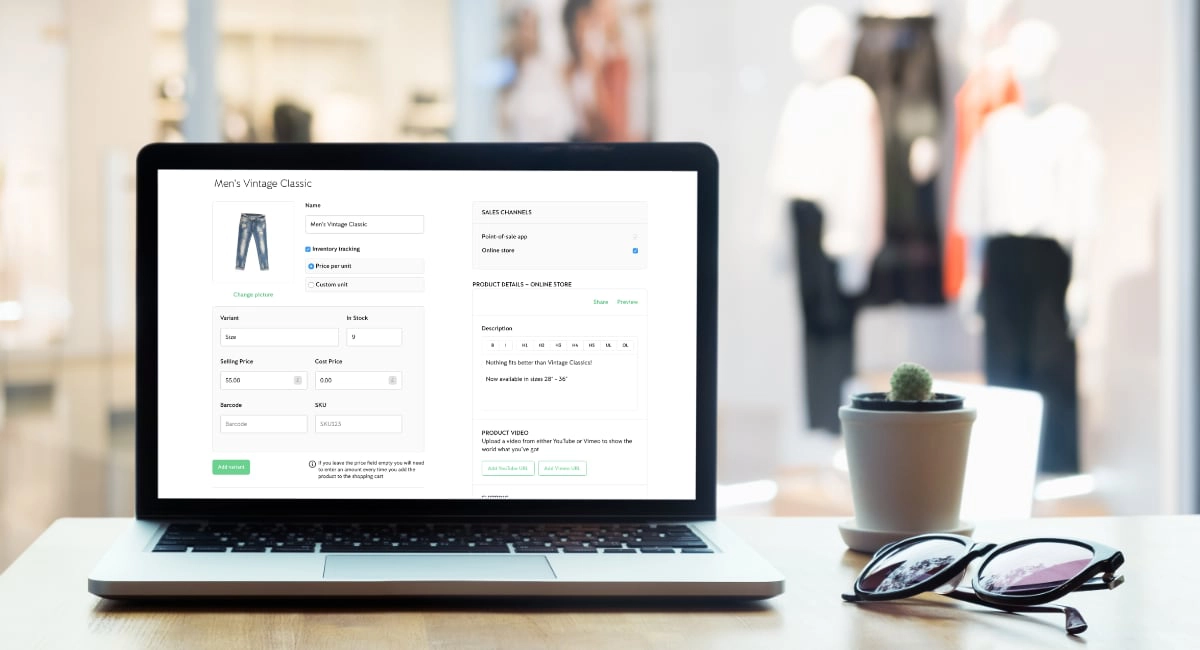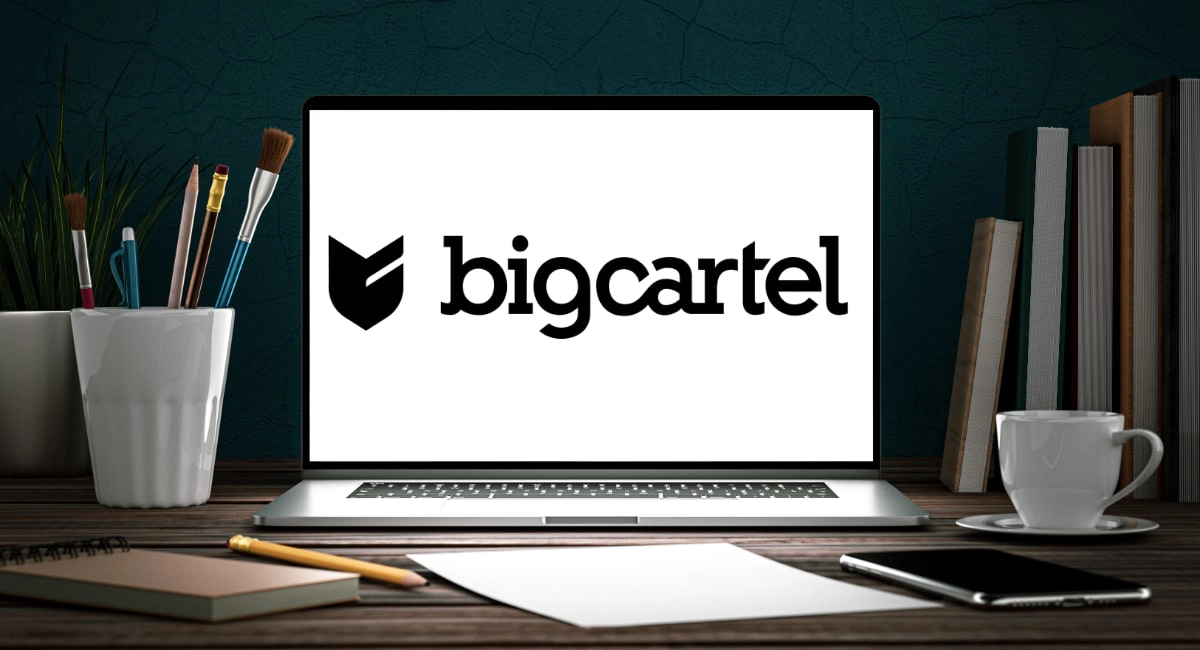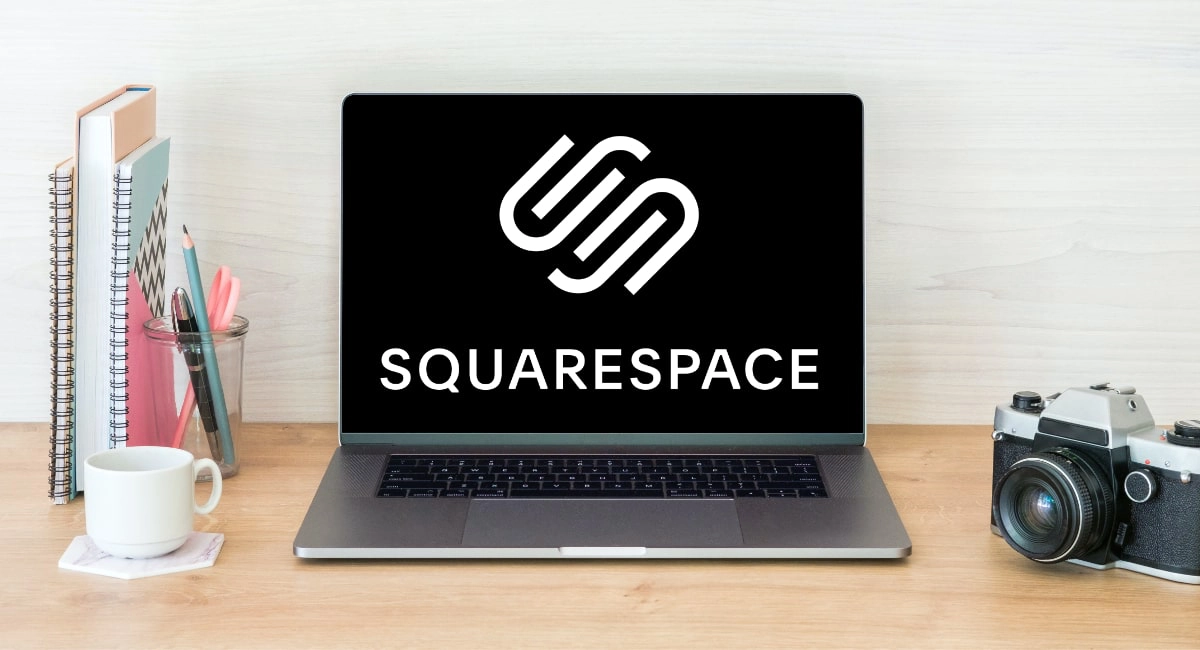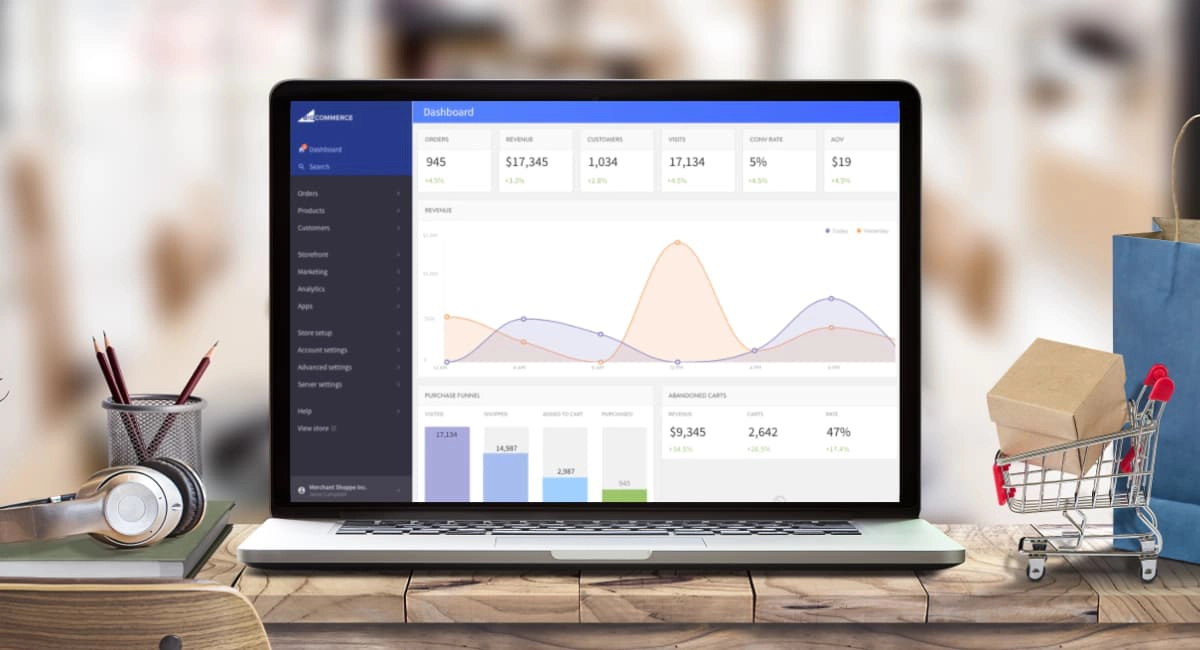- Highs: Very user-friendly. Integrated payment system with simple fees. Syncs with iZettle Reader sales.
- Lows: Low rate on PayPal transactions. Not the most comprehensive features. Customer support only on weekdays.
- Choose if: You want the easiest, integrated POS-and-online sales system under one roof.
Note: iZettle E-commerce was discontinued in January 2021. Existing users were initially moved to Selz. This integration was however discontinued in January 2022. Zettle merchants can integrate with BigCommerce, PrestaShop, WooCommerce, epages, Shopify or Shopware.
In a nutshell
Britain’s high street retailers are dwindling in numbers as consumers rely more on online shopping for all of their needs. In the face of all that, it’s no wonder one of Europe’s market leaders in mobile card readers, iZettle, has branched into ecommerce.
As the name suggests, iZettle E-commerce is a platform powered by iZettle allowing you to sell online. It is different from many other ecommerce platforms, because it’s set up to run so all the sales and product information in your iZettle account are synced up.
Photo: iZettle

iZettle E-commerce works for both brick-and-mortar and purely online businesses.
If you’re selling via the iZettle Go app and iZettle Reader (on offer for £29 + VAT), it therefore makes creating an online store really user-friendly and quick when you have products, stock counts, prices, etc. already added in the system.
The online store can accept Visa, Mastercard and American Express cards as well as PayPal.
Payments and fees
The E-commerce subscription costs £29 + VAT a month, which includes all ecommerce tools, online payment system and integration with other iZettle tools.
Apart from the monthly fee, you only pay a 2.5% transaction fee for all online Mastercard, Visa and Amex transactions. There is no lock-in contract, so you can cancel any time at no extra cost.
| iZettle E-commerce costs | |
|---|---|
| Subscription | £29 + VAT per month |
| Contractual commitment | None |
| Visa, Mastercard & Amex transaction fee | 2.5% |
| PayPal transaction fee | 2% |
| iZettle E-commerce costs |
|
|---|---|
| Subscription | £29 + VAT per month |
| Contractual commitment | None |
| Visa, Mastercard & Amex transaction fee | 2.5% |
| PayPal transaction fee | 2% |
Transactions are cleared in your chosen bank account within 1-2 working days.
If you have a PayPal Business account, you can also accept PayPal payments which iZettle only charges 2% for. Normally, online PayPal transactions are around 2.9-3.4% + 20-30p each (iZettle can offer this special rate since PayPal is its parent company). These transactions clear in your online PayPal account immediately, after which you can manually withdraw the money to your bank account from there.
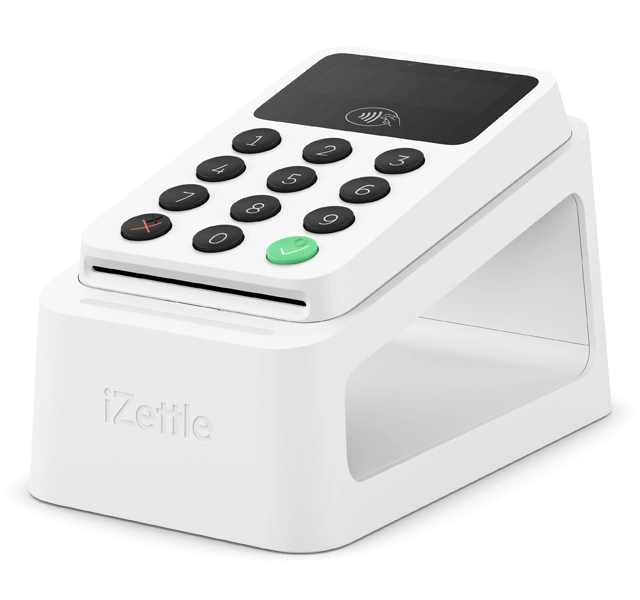
Full iZettle review:
Simple, yet feature-rich, card payment solution for small businesses
Features
It’s clear the many online store features are a result of careful considerations of what’s important to merchants. Small online businesses with little resources need things to be efficient in order to be cost-effective.
These are some of iZettle’s ecommerce features:
- Inventory management and detailed product profiles
- Customisation of shopping cart
- Discount codes for buyers
- Add terms and conditions to the checkout page
- Shipping tools to make it easy to manage customer orders
- Real-time shipping rates displayed to customers, with the ability to ship internationally through well-known shipping carriers like DHL and UPS
- Ability to refund payments online
- Marketing and customer retention tools like abandoned shopping cart follow-ups
- Selling on social media via ‘pay’ links (see more: iZettle payment link review)
- Detailed sales analytics with option to split point-of-sale from online sales
- Your own built-in blog that’s ready to use and post on
Image: iZettle
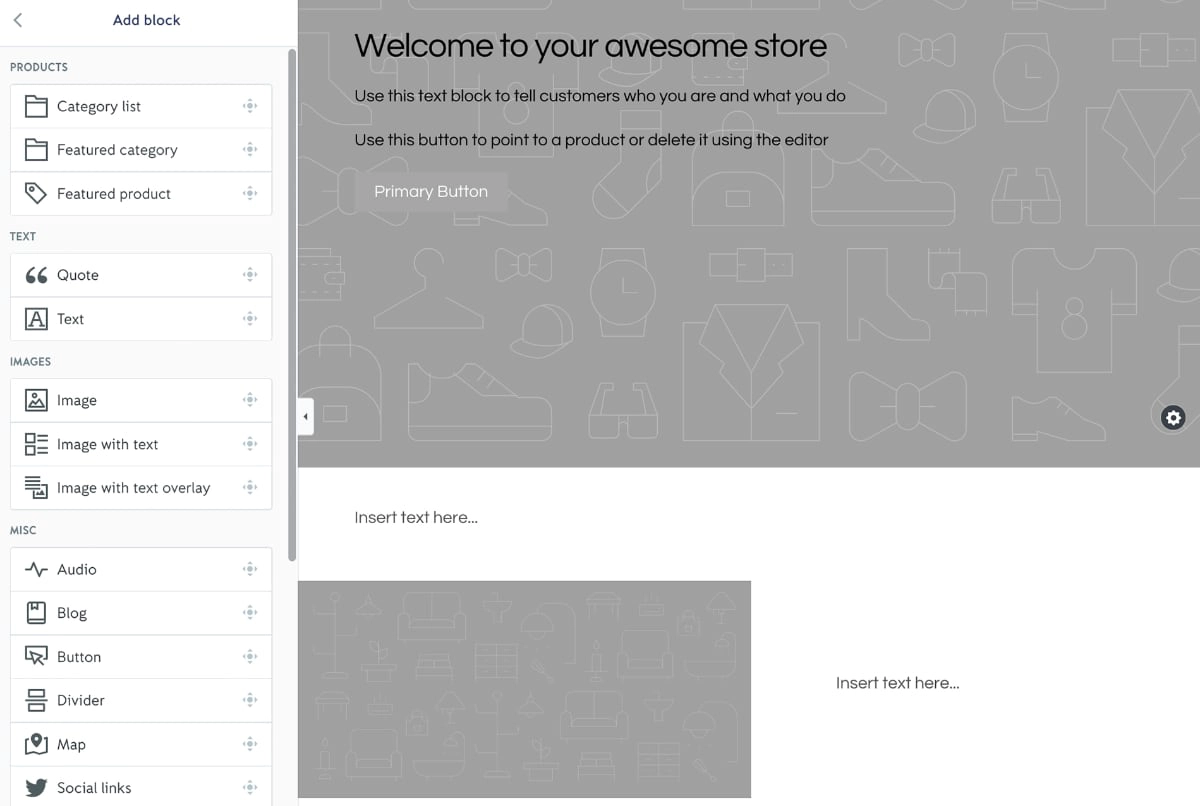
It doesn’t require knowledge of coding to build an online store through the user-friendly drag-and-drop builder.
Website templates
You don’t need to be a seasoned web designer to create an online store – not if you’re using iZettle, anyway.
The plan includes many website themes you can pick from, then easily customise through drag-and-drop (similar to how Wix works). No coding is needed, and the design and text elements are easy to figure out intuitively as you go along. Just one thing would make your job easier: to have at least some idea of how your shop should look.
All the templates are mobile-responsive, i.e. they adapt to the screen size of the device you’re visiting the website on. This is important, since more and more people are buying online from their smartphones.
Here are a handful examples of templates available to work from:
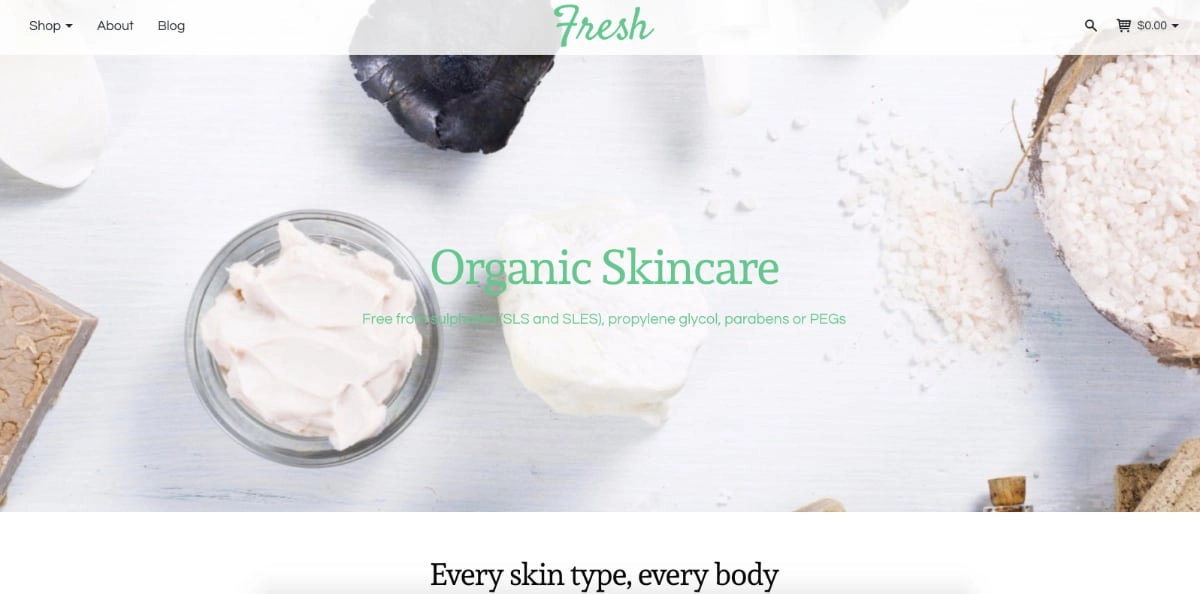
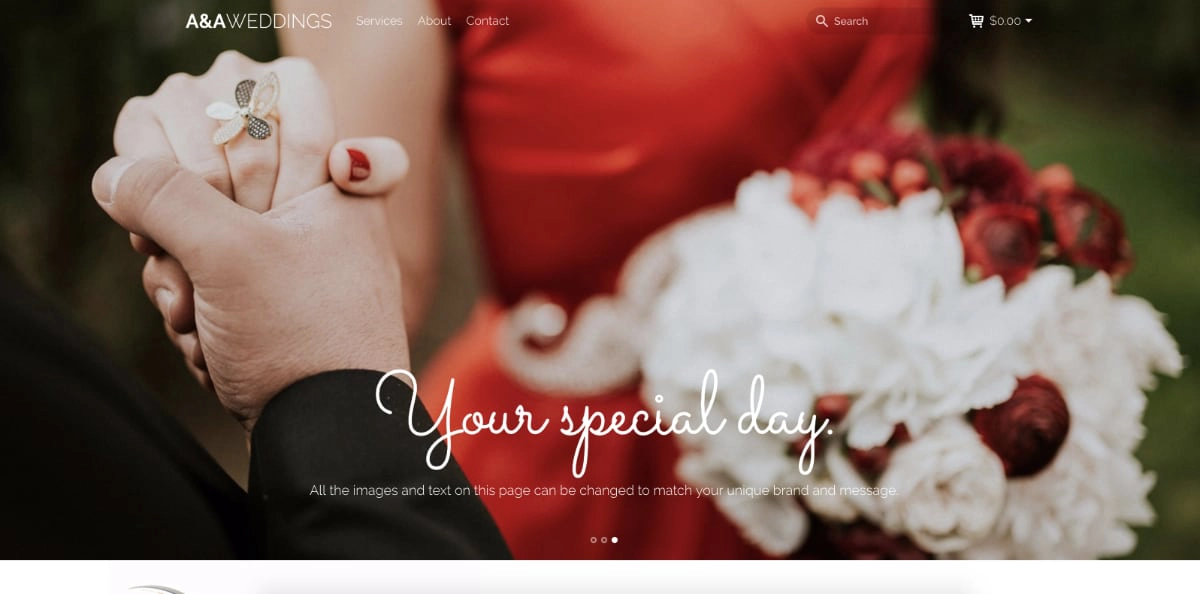

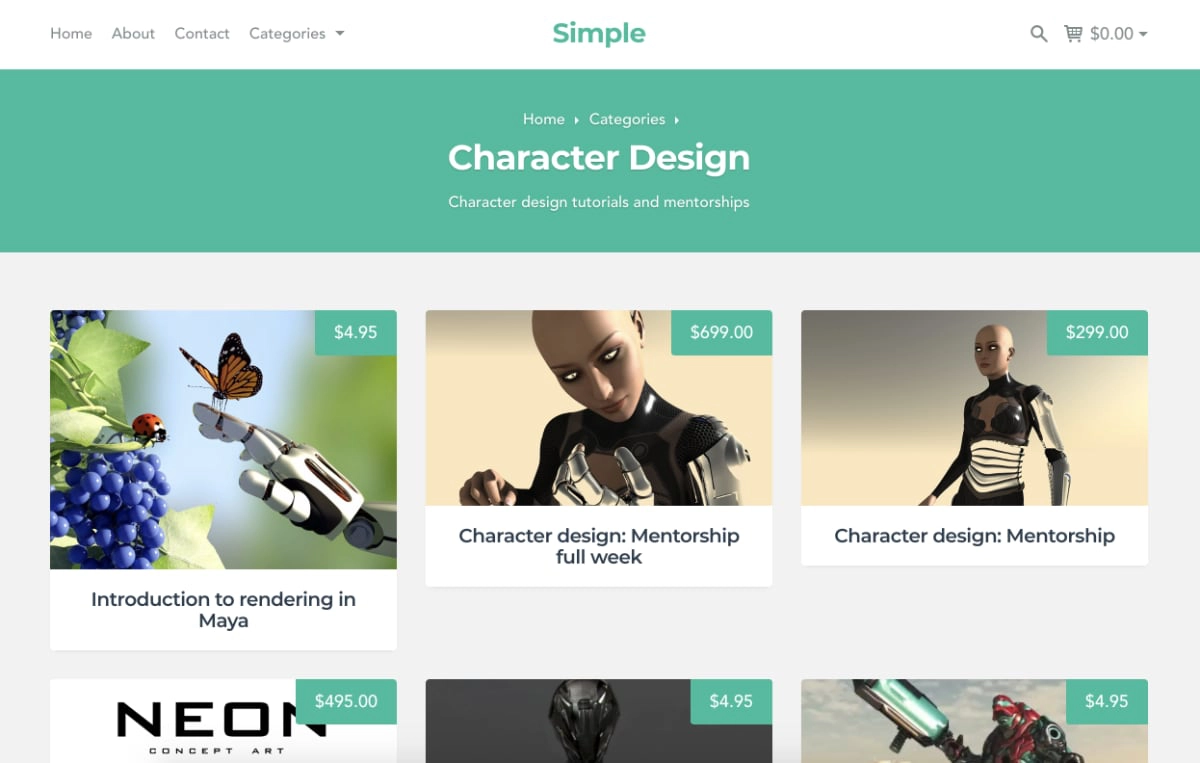
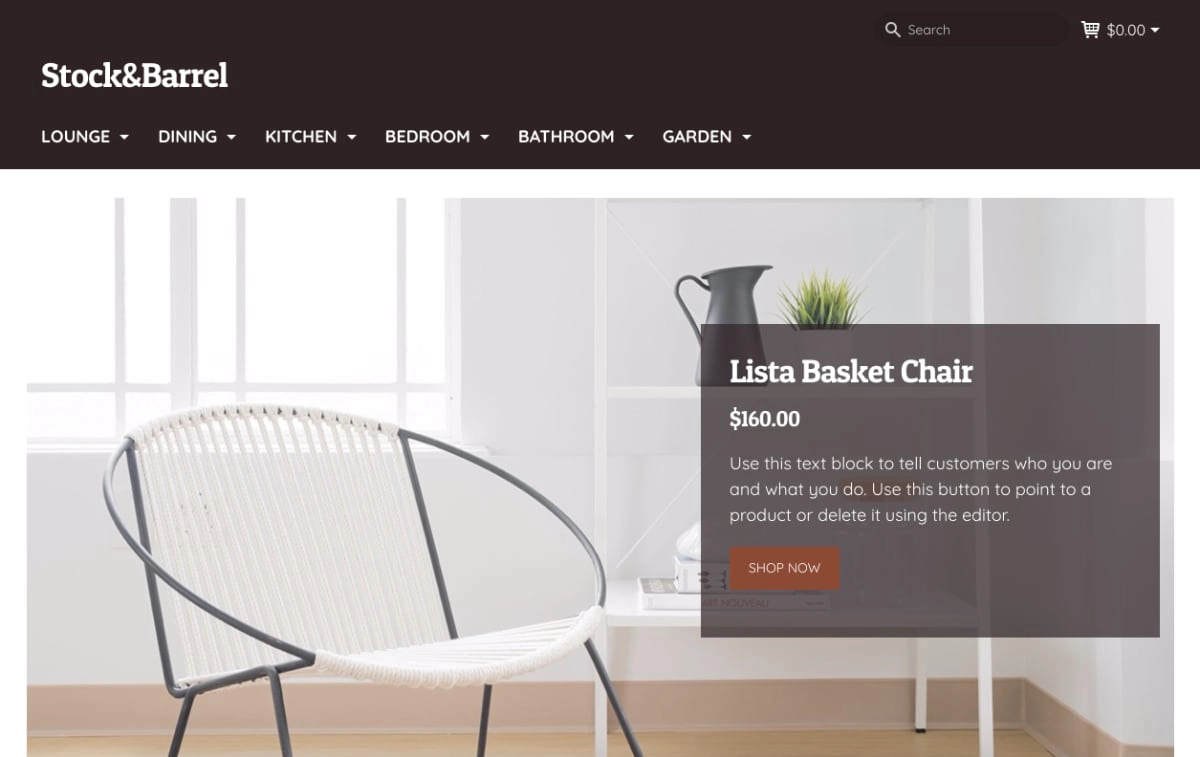
Domain, hosting and security under one roof
If you’re not that tech-savvy, you’d be pleased to know that iZettle can handle everything needed to set up shop online. This includes getting a domain (e.g. www.name.com), free SSL security certificate (the padlock icon next to a web address in the URL bar, meaning the website is trusted and secure) and free hosting (where your website is stored on a server).
If you already have all or some of these things sorted, you can use what you have and integrate iZettle on your existing website instead. If you’re getting a new domain through iZettle, just be aware that you purchase this separately, as is the norm online.
iZettle acts as the secure gateway so your customers can purchase securely through the system wherever the payment links are integrated, including the ‘buy’ links you can add to social media channels.
What does iZettle E-commerce integrate with?
It’s possible to integrate an iZettle online shop on an existing Wix, WordPress, Squarespace or other website platform where you can insert a piece of code to add iZettle’s shop elements.
The web store can be linked to your social media channels such as Facebook, Twitter and Vimeo.
With a Facebook Business page, you can set up a Facebook Shop that enables people to buy your products through Facebook. Setting this up is actually easier than you might imagine, since iZettle automatically syncs products in your account with the Facebook Shop, or you can choose just to sell particular items through Facebook ads. All sales are processed in the backend by iZettle, not Facebook.
It is even possible to add a Facebook Messenger chat to the corner of your website, so customers can chat to you directly about any questions they may have while browsing.
iZettle also integrates with marketing tools, including MailChimp (emails/newsletters), Disqus (user comments), Campaign Monitor (email marketing) and Yotpo (product reviews). Those with an eye on SEO can integrate the site with Google Analytics to track visitor numbers, user behaviour and much more.
Image: iZettle
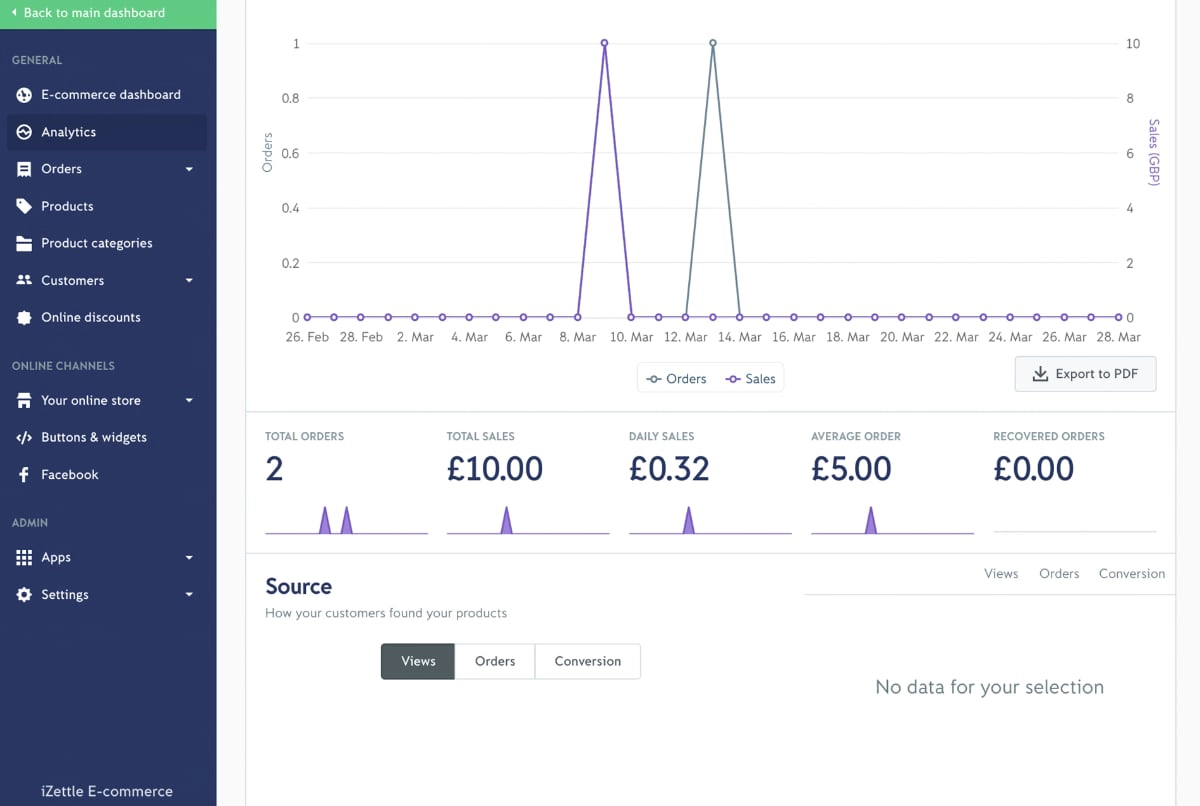
Sales analytics can be viewed in your iZettle E-commerce dashboard.
You also have the option to connect with Xero or QuickBooks for more advanced accounting and reports.
iZettle versus other ecommerce platforms
If inventory tracking is important and you want to stick to using iZettle Reader, it’s a no-brainer to subscribe to iZettle E-commerce. Dealing with one payment provider makes life simpler, and this is a very user-friendly system.
But what are the alternatives? If you’re selling the same things across your point of sale and online shop, it makes sense to use one system to make accounting easier and save time on the daily reports.
If your online shop is completely separate from face-to-face selling, or you’re just focusing on online sales, iZettle E-commerce would do the job as well, but there are other options that could be better.
Similar to iZettle: Square Online Store – low-cost and versatile
In the end, the choice depends on your business’ needs. For instance, if you sell unique products like artworks, Etsy could be ideal. In fact, it doesn’t make much sense to add one-of-a-kind products in a product library created for selling high volumes of the same products. Etsy is an online marketplace with many visitors ready to find your products, but an Etsy profile is just that: a profile, not your own website, but with an easy payment system.

A simple ecommerce system can lift the admin burden.
If easily-achieved, fancy designs are priority, Squarespace is a candidate, but their ecommerce customisations can appear a little rigid. Shopify, on the other hand, has a lot to offer online stores with their comprehensive product libraries and website customisation features. And if you’re using iZettle Reader, but want a more advanced online store, it is now possible to sync iZettle with Shopify.
WordPress is generally more difficult to set up if you’re not confident dealing with websites, but it has endless customisation opportunities. With WooCommerce, for example, you can turn a Wordpress site into an online store and still integrate with iZettle POS via a plugin. However, this requires looking online for a plugin, and the implementation is not that straightforward.
Verdict
It’s no coincidence iZettle chose to offer an online store that works with their POS. Many of today’s small businesses need to branch into ecommerce as a supplement to trading at a physical location, and that’s exactly what this is primarily aimed at.
The platform doesn’t require special knowledge in web design or online sales. Setting up an online store front is made as easy as can be, but iZettle also gives you plenty of ways to sell through different channels.
That said, there are better ecommerce platforms out there for more complex product management, more design customisations and other advanced needs.
Best for: Shops that need to survive and expand into ecommerce without the technological hurdles.

